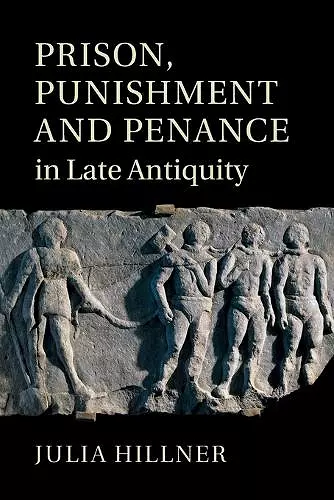Prison, Punishment and Penance in Late Antiquity
Format:Paperback
Publisher:Cambridge University Press
Published:15th Sep '22
Currently unavailable, and unfortunately no date known when it will be back
This paperback is available in another edition too:
- Hardback£105.00(9780521517515)

This book argues that late antiquity introduced a legal form of punitive imprisonment, complicating the concept of the 'birth of the prison'.
The first book in English on the Roman prison, and the first on the Roman prison's late antique incarnation as a penal institution. It describes how late Roman penal strategies, in particular different spatial forms of imprisonment, responded to new social values of penance and purification of society.This book traces the long-term genesis of the sixth-century Roman legal penalty of forced monastic penance. The late antique evidence on this penal institution runs counter to a scholarly consensus that Roman legal principle did not acknowledge the use of corrective punitive confinement. Dr Hillner argues that forced monastic penance was a product of a late Roman penal landscape that was more complex than previous models of Roman punishment have allowed. She focuses on invigoration of classical normative discourses around punishment as education through Christian concepts of penance, on social uses of corrective confinement that can be found in a vast range of public and private scenarios and spaces, as well as on a literary Christian tradition that gave the experience of punitive imprisonment a new meaning. The book makes an important contribution to recent debates about the interplay between penal strategies and penal practices in the late Roman world.
'… Julia Hillner's inviting style allows the reader to come to her own conclusions with guided direction. Even if one does not always agree with some of the arguments put forth, all the evidence is provided for you, which is an invaluable feature of this book. Finally, due to the vast amount of topics discussed by the author, readers will inevitably be inspired to pick up new threads for further discovery. This book is a wonderful contribution to the field and comes highly recommended.' Jennifer Barry, Bryn Mawr Classical Review
ISBN: 9781009296410
Dimensions: 229mm x 151mm x 22mm
Weight: 640g
442 pages